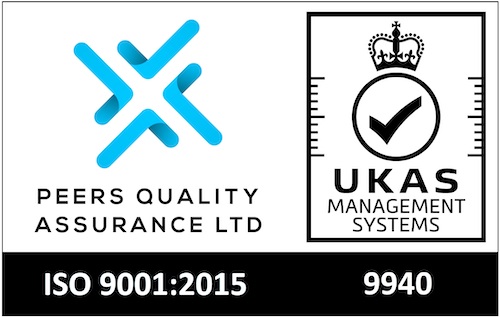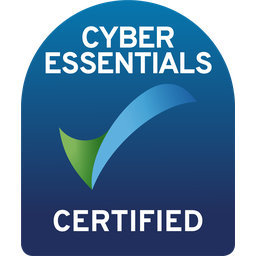Right to Work Checks for Foreign Nationals in the UK
Right to Work Checks for Foreign Nationals in the UK
Moving to a new country can feel extremely strange and navigating working restrictions can be challenging. At MyVetting.com, we’ll give you the basics and tell you what you need to know about the Right to Work for Foreign Nationals in the UK.
What is a Right to Work check?
The term “right to work” typically refers to the legal right of individuals to work in a particular country. In the United Kingdom (UK), the right to work is regulated by immigration laws and policies.
In the UK, people that are not British citizens might need to obtain a right to work through a visa or work permit. This can be done quickly and easily by employers with an online Right to Work check through MyVetting.com.
The type of visa or permit you need depends on your nationality, reason for staying and the type of employment. The UK Government sets out rules and requirements for individuals seeking to work in the country.
Employers must ensure their employees have the legal right to work in the UK. Failure to comply with these regulations can result in penalties for both employers and employees.
Understanding the Right to Work
The right to work in the UK For foreign nationals is governed by immigration laws and regulations.
Here’s an overview of the legal requirements and documentation needed to prove eligibility to work in the UK:
Legal Requirements for Foreign Nationals:
1. Visa or Work Permit:
- You may need to obtain a visa or work permit to legally work in the UK. The type of visa required depends on the purpose of your stay, the nature of your work, and your nationality.
2. Sponsorship:
- In many cases, individuals might need to be sponsored by a UK employer to obtain a work visa. Employers must be licenced sponsors, and they need to issue a Certificate of Sponsorship (COS) to the employee.
3. Compliance with Immigration Rules:
- Both employers and employees need to track visa expiry dates, report changes in employment and make sure employment conditions match visa requirements.
4. Biometric Residence Permit (BRP):
- Individuals granted a visa for more than six months may receive a Biometric Residence Permit, which contains personal details and immigration status. This permit serves as evidence of the individual’s right to work.
Documentation Needed to Prove Eligibility:
1. Passport:
- A valid passport is typically required for travel to and entry into the UK. It also serves as proof of identity.
2. Visa or Work Permit:
- The specific visa or work permit issued by the UK government is a crucial document. This will outline the individual’s permission to work, and any conditions associated with the visa.
3. Certificate of Sponsorship (COS):
- If applicable, the COS issued by the sponsoring employer is essential. It includes information about the job, salary, and the duration of the sponsorship.
4. Biometric Residence Permit (BRP):
- If the individual is granted a visa for more than six months, they may receive a BRP, which acts as a physical proof of their immigration status.
5. National Insurance Number:
- While not directly related to immigration, having a National Insurance Number is important for tax and social security purposes in the UK.
Restrictions on Work for Foreign Nationals
Foreign nationals working in the UK may find that they face certain restrictions based on immigration laws and policies. Common working restrictions faced by foreign nationals in the UK include:
1. Visa Type and Work Permissions:
- Tier 2 General Visa: Many non-European Economic Area (EEA) nationals need a Tier 2 General Visa to work in the UK. This visa is often tied to a specific job offer from a UK employer who is a licenced sponsor.
- Tier 5 Visa: This visa category is for temporary workers, and various subcategories exist, including for charity workers, creative and sporting professionals, and youth mobility.
2. Dependence on Sponsorship:
- Non-EEA nationals are often dependent on sponsorship by a UK employer. This means that they can only work for the specific employer who sponsored their visa.
Impact on Foreign Nationals’ Access to Work:
Limited Job Mobility:
Foreign nationals under certain visa categories may be limited to working for a specific employer, limiting their job mobility and flexibility.
Uncertainty:
Temporary visa statuses may lead to uncertainty for foreign nationals regarding their long-term prospects in the country.
Challenges for Dependents:
Dependents of foreign workers may also face restrictions on their ability to work, impacting the overall family’s economic stability.
Requirement to Comply:
Pressure exists on both employers and foreign nationals to comply with immigration laws, with potential legal consequences for non-compliance.
Competitive Job Market:
Foreign nationals may face challenges in a competitive job market, particularly if employers are hesitant to go through the sponsorship process.
Legal Considerations and Right to Work Verification
Legal Obligations for Employers:
Employers in the UK have a legal obligation to ensure that their employees have the right to work in the country, including right to work checks before employment begins.
Right to Work Checks:
Employers should check and verify the immigration status of every employee, regardless of nationality. This includes examining and copying relevant documents such as passports, visas, and residence permits through processes including online right to work checks.
Penalties for Non-Compliance:
Failure to comply with right to work checks can result in serious consequences for employers, including fines and legal action.
Equality in Right to Work Verification:
Employers must apply right to work checks uniformly to all employees to avoid discrimination. Treating employees of another nationality different to other employees is illegal.
Discrimination Laws in the UK:
Equality Act 2010:
The Equality Act 2010 is a comprehensive piece of legislation in the UK that addresses discrimination and promotes equal opportunities. It covers various protected characteristics, including race, nationality, and ethnicity.
Direct and Indirect Discrimination:
The Act prohibits both direct and indirect discrimination. Direct discrimination is when someone is treated less favourably because of their nationality, while indirect discrimination means that a rule or policy puts someone at a disadvantage because of a protected characteristic.
Nationality and Race Discrimination:
Discrimination based on nationality or race is explicitly prohibited under the Equality Act. This includes discrimination in recruitment, terms and conditions of employment, and opportunities for promotion.
Victimisation and Harassment:
The Act also prohibits victimisation (treating someone unfairly because they have made a complaint about discrimination) and harassment (unwanted conduct related to a protected characteristic that violates an individual’s dignity or creates an intimidating, hostile, degrading, humiliating, or offensive environment).
Online Right to Work Checks
At MyVetting.com, we understand the need for right to work checks to be quick and easy to complete – and they need to be affordable to employers of all types and sizes. Our streamlined digital process means that employers can send right to work check alerts straight to your device. You can submit your evidence online and get your Right to Work report in a day, with many of MyVetting.com’s checks returned within a day.








